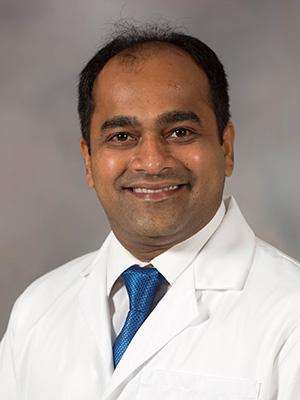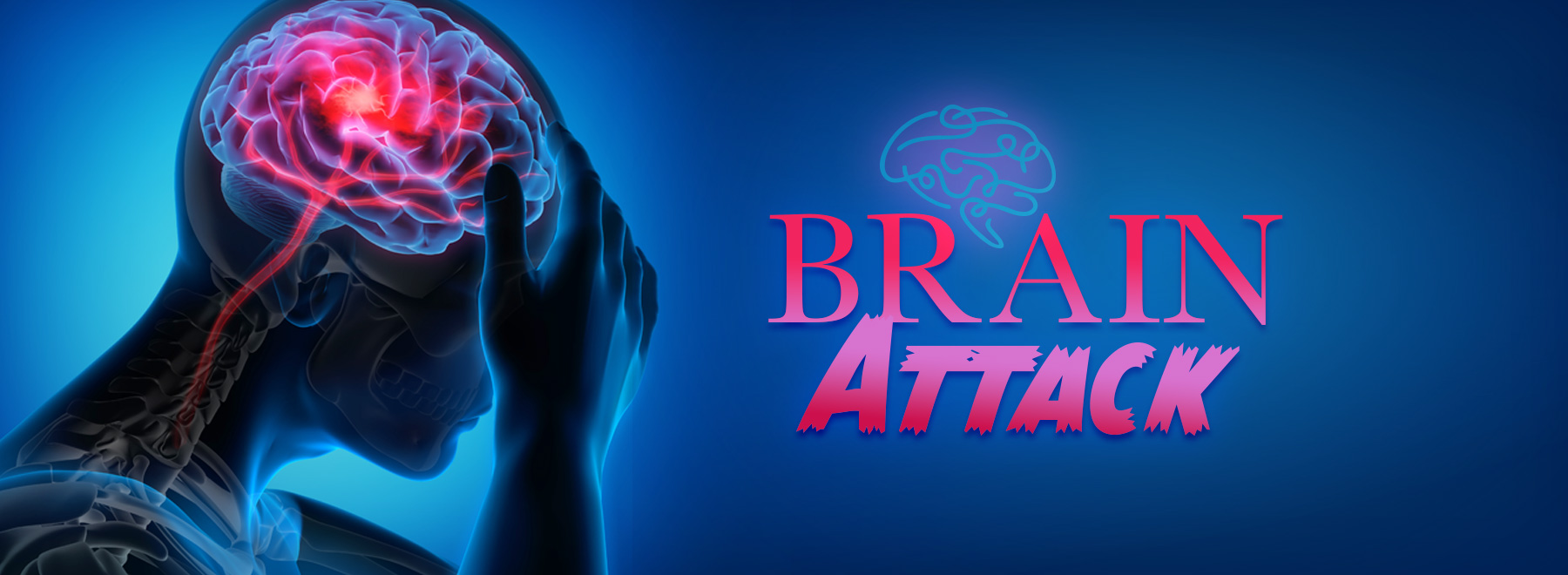Managing stress, anxiety reduces stroke risk
We’ve all seen it on TV and in the movies: Someone who’s stressed, angry or unhealthy clutches their chest, screws up their face and has a heart attack.
But stress, especially during the trying times of a pandemic, also can lead to what some in the medical community refer to as a “brain attack.” It’s a stroke, and if symptoms are ignored or treatment is delayed, a life can be lost.

“Anxiety levels are high now in some people,” said Dr. Shreyas Gangadhara, an assistant professor and chief of the Division of Vascular Neurology at the University of Mississippi Medical Center. “Some of my patients who had quit smoking have gone back to it.”
Taking steps to manage anxiety and stress, he said, is not only good for overall health, but a key factor in reducing your risk of stroke and heart disease.
Stroke is the fifth-highest killer and leading cause of disability in the United States, the American Heart Association says. February is Heart Month, a time to help increase awareness of the signs and symptoms of stroke and what you can do to control your risk.
A stroke occurs when the blood supply to part of the brain is interrupted or reduced, preventing brain tissue from getting oxygen. That means brain cells begin to quickly die. A stroke is usually caused when an artery is blocked by a blood clot or other debris, or when a blood vessel in the brain is leaking or has burst.
If someone is having trouble walking or speaking, has trouble speaking or understanding what others are saying, has paralysis or numbness of the face, arms or legs, or has a headache or problems seeing, think FAST:
- Face: Can the person smile. Does one side of the face droop?
- Arms: Can they raise both arms? Does one drive downward, or is one arm unable to be lifted?
- Speech: Is the speech slurred or unusual?
- Time: Call 911 if any of these signs are occurring.
If you’re experiencing one or more of these factors, you’re at added risk: you have high blood pressure or blood cholesterol, are a smoker, are obese, get little exercise, eat a diet high in fat and sodium, are diabetic, have carotid or peripheral artery disease, have sickle cell disease, or have other heart diseases. The American Heart Association offers a stroke quiz that gives a good idea of your risk.
“They add up,” Gangadhara said of risk factors. “And when anxiety is uncontrolled, the other things can get out of control.”
The best chance doctors have of successfully treating a patient, and hopefully averting a stroke altogether, is to see them early, said Gangadhara, who also directs UMMC’s TeleStroke program and vascular neurology fellowship program.
“We can give clot-buster medications up to four and half hours from symptom onset in patients who qualify for it, and in some patients, we can surgically pull the clot out if we see them within 24 hours,” he said.
UMMC‘s Stroke Center provides highly coordinated stroke care and is a certified primary stroke center. The center has state-of-the-art technology and facilities, including a six-bed dedicated stroke unit, and a 20-bed neurosciences intensive care unit.
The Stroke Center has been honored by the American Heart Association and American Stroke Association with their “Get with the Guidelines” Stroke Gold Plus Achievement Award.
Since the pandemic began, Gangadhara said, “we’ve seen patients aren’t going to the emergency room as much as they would have previously. They hear the ER is full, so they come a week later after their symptoms don’t get better. Or, they come to an ER and are told there’s going to be a long wait, so they leave.”
“Sometimes when they come to see me in the clinic, it’s too late to decrease their stroke burden,” he said. “We could have prevented some of the worst effects of stroke.”
Take proactive steps to manage your health and stress levels so that your risk is lower, Gangadhara suggests. If you’re smoking, quit. If you haven’t been vaccinated, do so quickly because your stroke risk factors can potentially come into play if you are sickened with the virus,
“Go to your primary care doctor. Get your blood pressure checked and under control,” Gangadhara said.
“Eat a healthy diet – more veggies and fruits, and less fried foods and fast food,” he said. “Exercise. Go for a walk, or do an exercise you like, a minimum five times a week to get your heart rate up.”
To contact a specialist in neurosciences care at UMMC, call (601) 984-5500
The above article appears in CONSULT, UMMC’s monthly e-newsletter sharing news about cutting-edge clinical and health science education advances and innovative biomedical research at the Medical Center and giving you tips and suggestions on how you and the people you love can live a healthier life. Click here and enter your email address to receive CONSULT free of charge. You may cancel at any time.



